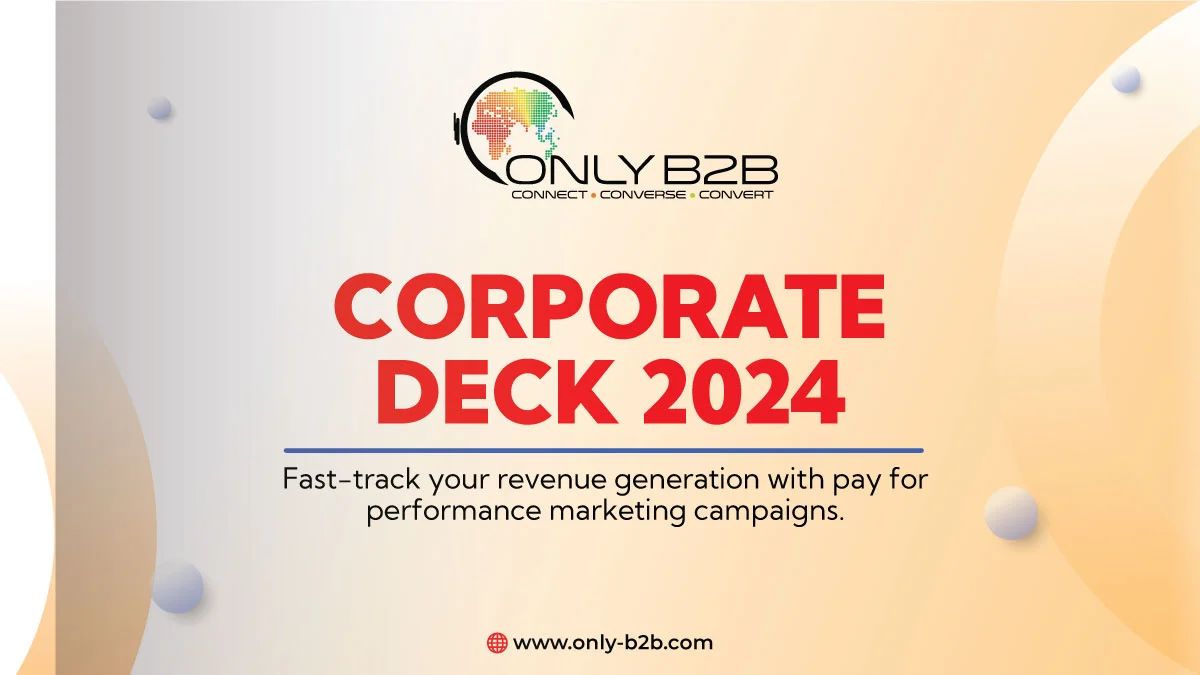
Leads are critical for every B2B marketer, but according to the HubSpot’sReport in 2018, driving traffic and leads is the biggest difficulty for 61 % of marketers. As a result, it’s no wonder that most marketers emphasize only on generating as many leads as possible especially when it comes to B2B lead generation rather than employing MQL.
The attention is on number of leads rather than quality leads when it comes to lead generation. The difficulty with this approach quickly becomes obvious because obtaining leads is merely a route to the ultimate objective of obtaining more clients.

Source: AngelList
Regrettably, the problem of haphazardly acquiring more and more leads does not end here. Soon after, the leads are forwarded to sales teams, who must sift through an excessive amount of low-quality leads. Teams grow frustrated as a result, quit following up, and overlook the few quality leads amongst sea of low-quality leads. Then the criticize game begins, and sales and marketing teams begin pursuing each other rather than cooperating.
Before matters get out of hand, it’s critical to grasp the integrated lead generation approach, the subtlety behind each lead, how to distinguish these subtleties, and why these details matter to B2B marketers.
What Are The Various Sources Of Leads?
Table of Contents
Multi-channel lead nurturing is the most effective strategy to engage not just a larger number of individuals, but also the high-quality MQLs who will redirect into clients. It entails reaching out to leads via a sequence of tailored messages given across many platforms, technologies, and interactions.
Multi-channel lead nurturing entails pairing a specific lead with the appropriate material, delivered via the appropriate platform, at the appropriate time. A tailored approach, rather than a blanket plan, is the way to proceed. Furthermore, viewers want their attention to be earned, which implies that all material must be valuable.
Lead magnets, which are mechanisms that deliver significance to a customer in return for data that reflects a curiosity in a website, are used to provide convincing value and ultimately generate Marketing Qualified Leads (MQLs). The lead magnet’s purpose is then to get the marketer authorization to catch up with the lead.
Subscribers, email sign up, and social media followers, for example, may all be found in many types of material, such as:
- Whitepapers and video series for training
- Expertise interviews on important subjects
- Ebooks
- Blogs
- Webinars
- Newsletters
- Case Studies
- Corporate Decks

Source: Salesforce
The following are some of the numerous lead generating tactics that a B2B organization might also use:
- Creating a marketing system based on incentives
- Marketing via email
- Establish mutually profitable lead-swapping partnerships with other businesses.
- Create and manage a website
- Search Engine Optimization
- LinkedIn Marketing
- Content marketing.
- Seminars
- Live Chat Bots
- Influencers
Must Read: Is MQL Dead? We Don’t Think So!
How To Asses MQL?
Leads need to be certified as either problem informed (MQL) or solution informed (SQL). Aside from that, each MQL’s subtlety must be exposed and evaluated. Lead scoring is the best way to perform this qualifying and prioritizing procedure.
Scoring Of Leads
Lead scoring is a mechanism used by marketing and sales teams to measure the quality of a lead by giving points based on their engagement, activity, or interest in a product as they progress through the sales funnel. By assigning points to different actions, marketers can identify high-potential leads more effectively.
This not only improves mql lead nurturing but also helps prioritize leads for sales outreach, ultimately aiming to boost the B2B lead to MQL conversion rate. Marketing automation software frequently includes lead scoring as a feature.
Based on if the lead is ‘hot,’ ‘cold,’ or ‘warm,’ lead nurturing will be delegated to either sales or marketing teams or both.
Sales and marketing teams must collaborate on the following in order to build up a lead scoring structure:
- Creating a buyer’s portfolio
- Identify and comprehend the terms “interest” and “intent.”
- Establish MQLs and a lead scoring algorithm. Determine whether behaviors reflect intent or interest.
- Have a shared knowledge of the lead’s situation that the service addresses.
- Establish firmographic/demographic qualifying elements and have a thorough understanding of the decision-making process
- What questions should you ask the lead?
- What’s the best way to get any relevant information out of the lead?
The Moral Of The Story: It’s Critical To Know The Different Types Of MQL Leads
When each MQL is managed individually depending on their eligibility, both the marketing and sales teams can make superior use of their time and resources to transform leads into customers and optimize revenues. However, not all MQLs are created equal.
Distinguishing between MQLs and Highly Qualified Leads (HQLs) allows marketers to prioritize their efforts. By focusing on nurturing MQLs with targeted content aligned with their buying stage, marketers can improve conversion rates and generate a pipeline of sales-ready leads.
1. Knowing Who Your Ideal Customer Is
The manner in which a lead is discovered and the enthusiasm shown by the lead helps the marketer to understand the customer’s capability and challenges, allowing the marketer to either give appropriate content for additional nurturing or instantly pass the lead to the sales team.
2. Improves The Return On Investment (ROI)
The marketer can significantly enhance the number of leads who convert into customers by understanding the various types of MQLs and their position in the buying cycle. This knowledge, combined with defining clear MQL criteria based on buyer behavior and engagement, fuels a lead scoring approach.
This targeted strategy allows for a more efficient lead nurturing sales journey that ultimately results in the lead becoming a customer.
Must Read: Measuring the ROI of Your Account based marketing Strategy : Key Metrics to Track for Success
3. The Sales Pipeline Improves Its Efficiency
The potential customer is better understood, considering if they are symptom-informed, problem-informed, or solution-informed. This enables the marketer to take the appropriate actions toward resolving the client’s issue, ultimately nurturing them towards a sale.
By pinpointing a lead’s buying stage, marketers can tailor their approach and improve the MQL to SQL conversion rate, ensuring qualified leads are passed to sales at the optimal time to maximize sales opportunities.
4. Increased Profits
Acknowledging the MQL versus the SQL (Sales Qualified Lead) helps the marketer make the best choices for the lead in terms of interaction and content creation. This distinction allows for targeted nurturing specific to a lead’s buying stage, resulting in a cheaper cost of customer engagement as well as a sleeker and faster sales funnel migration. All of this puts the marketing and sales team on the path to greater income
And the moral of the story is that you can only begin to improve the accuracy and quality of your marketing efforts if you understand your target clients’ purchase habits. Spend less time chasing down dead leads and more time attracting really interested buyers.
MQL has the ability to put you in front of the right leads at the right time with accurate, targeted, and original content when utilized as part of your marketing strategy and paired with your own professional experience. Explore the blogs and articles on our website to learn more about the relevance of MQL.
Must Read:What Is MQL & SQL and How Do They Differ?

Vikas Bhatt is the Co-Founder of ONLY B2B, a premium B2B lead generation company that specializes in helping businesses achieve their growth objectives through targeted marketing & sales campaigns. With 10+ years of experience in the industry, Vikas has a deep understanding of the challenges faced by businesses today and has developed a unique approach to lead generation that has helped clients across a range of industries around the globe. As a thought leader in the B2B marketing community, ONLY B2B specializes in demand generation, content syndication, database services and more.


